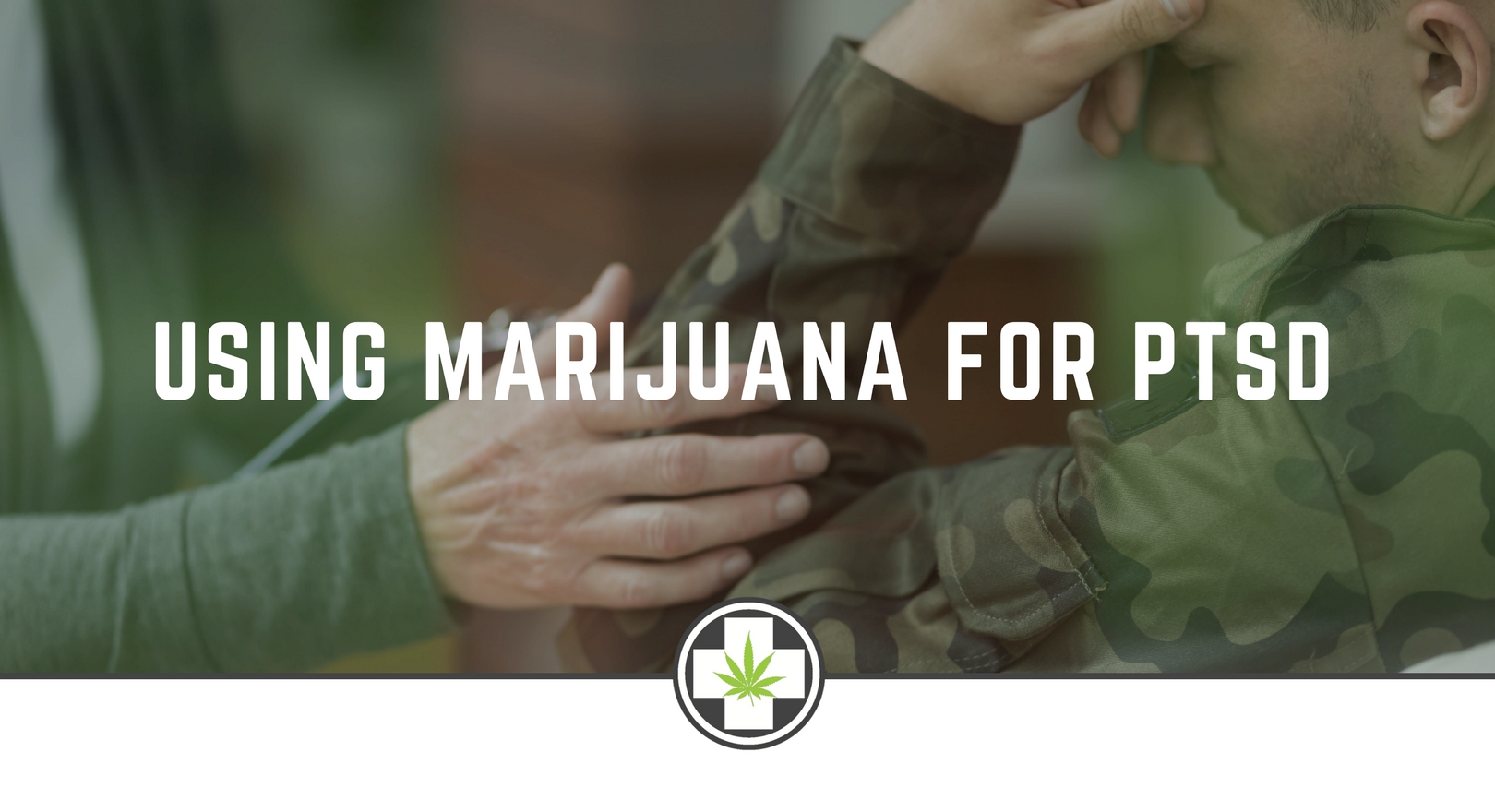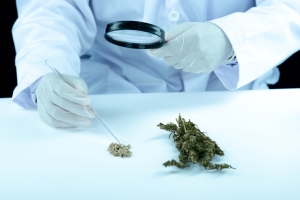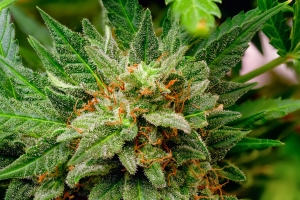Using Marijuana For PTSD
PTSD (post-traumatic stress disorder) affects 5.2 million Americans each year.
Anecdotal evidence suggests that using marijuana for PTSD may be an effective treatment. Unfortunately, marijuana’s Schedule 1 drug status makes it difficult for researchers to conduct conclusive studies.
Even so, the state of Nevada includes PTSD as a qualifying condition for medical marijuana. If you have PTSD, consider medical marijuana as a treatment option.
How Do People Get PTSD?
People can develop PTSD after experiencing a traumatic, life-threatening event such as:
- military combat
- sexual abuse/assault
- natural disasters
- car accidents
What are the Symptoms of PTSD
There are four main symptoms of PTSD: re-experiencing symptoms, avoidance, hyperarousal and increased negative feelings and thoughts.
1. Re-experiencing Symptoms
This means reliving the traumatic experience that initially caused your PTSD.
This symptom can take the form of disturbing memories that arise unexpectedly. Sometimes, these memories are so powerful it actually feels as if the person is back in the original experience. These types of experiences are called “flashbacks.”
2. Avoidance
PTSD patients may try to avoid experiences or situations that trigger memories of the original trauma. Imagine a driver who must go out of her way to avoid traveling down a particular street because she was in a massive car wreck on that street several years ago. Or a veteran who shuts himself in his room on the Fourth of July because the sound of fireworks triggers memories of being back on the battlefield.
3. Hyperarousal
This synptom involves being in a heightened state of alertness and feeling the need to constantly look out for danger, even if one’s environment is reasonably safe. This can lead to insomnia, difficulty concentrating and explosions of anger and irritability.
4. Negative Feelings and Thoughts
After the traumatic event, PTSD patients may struggle with negative thoughts and feelings. They may begin to see the world as a dangerous place – one they can no longer feel safe in or trust. Consequently, they may no longer want to participate in activities they used to enjoy or spend time with friends or loved ones.
What Other Issues Can Develop With PTSD?
- Depression / anxiety
- Problems with drugs/alcohols
- Chronic pain
- Difficulty holding down a job
- Relationship issues
- Feelings of despair, hopelessness and shame.
PTSD and Veterans
- Almost 30 percent of women and men who serve in combat regions suffer from PTSD.
- Additionally, 20 to 25 percent of veterans experience partial PTSD at some point in their lives.
- Nearly 20 veterans commit suicide every day.
Standard Treatment for PTSD
Standard treatment for PTSD usually involves a combination of psychotherapy and prescription medications, including anti-depressants and painkillers.
However, using prescription drugs to treat PTSD has become a controversial issue. Some of these drugs have strong side effects such as headaches, drowsiness, dizziness and the inability to enjoy sex. Patients may also find it difficult to enjoy and participate in life if they are heavily sedated.
Furthermore, opioid painkillers pose a unique risk, especially to veterans. According to TIME, veterans who served in Iraq and Afghanistan are twice as likely to be prescribed opioid painkillers if they also have PTSD. These same veterans are also more likely to overdose on drugs and alcohol, engage in self-destructive acts or violence, and commit suicide than those who don’t use these prescription drugs.
Medical Marijuana as a Treatment For PTSD
- Animal studies suggest that using marijuana for PTSD may be an effective treatment.
- Colorado wants to add “PTSD” to its list of qualifying conditions for medical marijuana use. If it succeeds, it will join the ranks of more than 20 other states that have already made this move.
- The veteran-founded organization Weed For Warriors provides veterans with information about medical marijuana, a forum to connect with other veterans and access to free medicine. Anecdotal evidence suggests that veterans can improve their pain and PTSD symptoms using medical marijuana.
Why Using Medical Marijuana For PSTD Could Work
New York University researchers found that people with PTSD have lower-than-normal amounts of the neurotransmitter anandamide.
Anandamide, which is also an endocannabinoid, is produced by the brain, and it’s a part of the larger endocannabinoid system. This system controls and manages our memory and pain sensations, among many other things. It’s also the same system that THC and other cannabinoids engage with when you consume medical marijuana.
This may be the reason why using marijuana for PTSD could work. Marijuana’s cannabinoids could help replenish the body’s lost endocannabinoids.
The endocannabinoid system regulates memory, which is especially important because the most significant feature of PTSD is the inability to forget past traumatic experiences. Marijuana could provide these patients with the mind-and-body relief they need in order to heal.
The VA and Medical Marijuana
For veterans who have PTSD, one of the problems they face is that medical marijuana is still against federal law. For this reason, doctors are not permitted to prescribe or recommend medical marijuana to their patients.
The VA’s stance on medical marijuana can best be described as “mixed.” On their website, the VA reiterates that there is no proof that medical marijuana can effectively treat PTSD.
They also warn of “marijuana dependency” among veterans – a condition in which one’s marijuana use becomes so frequent that it actually becomes a substance abuse issue.
However, if a non-VA physician recommends medical marijuana to a veteran living in a marijuana-legal state, the VA may allow the veteran to use his or her medicine and not lose their benefits.
Marijuana dependency is a real condition; however, we don’t feel that the solution is to keep marijuana away from people who need it. Remember: it’s perfectly legal for veterans to use opioids, which – unlike marijuana – can be fatally overdosed.
In other words, any medicine can be abused if it’s not used properly. That’s why it’s important that all patients use medical marijuana under the supervision of a licensed physician.
Future Research on Using Marijuana for PTSD
John Hopkins University and MAPS were on track to study the effects of using medical marijuana for PTSD patients. Unfortunately, John Hopkins pulled out after MAPS complained that the marijuana provided by the federal government was contaminated with mold and lead.
MAPS still plans to proceed with the study. We’ll keep you updated on their progress.
If you’d like more information on using marijuana for PTSD please give us a call. And if you don’t already have your medical marijuana card, make an appointment to see our doctor so that we can help get you on the road to healing and pain relief!






